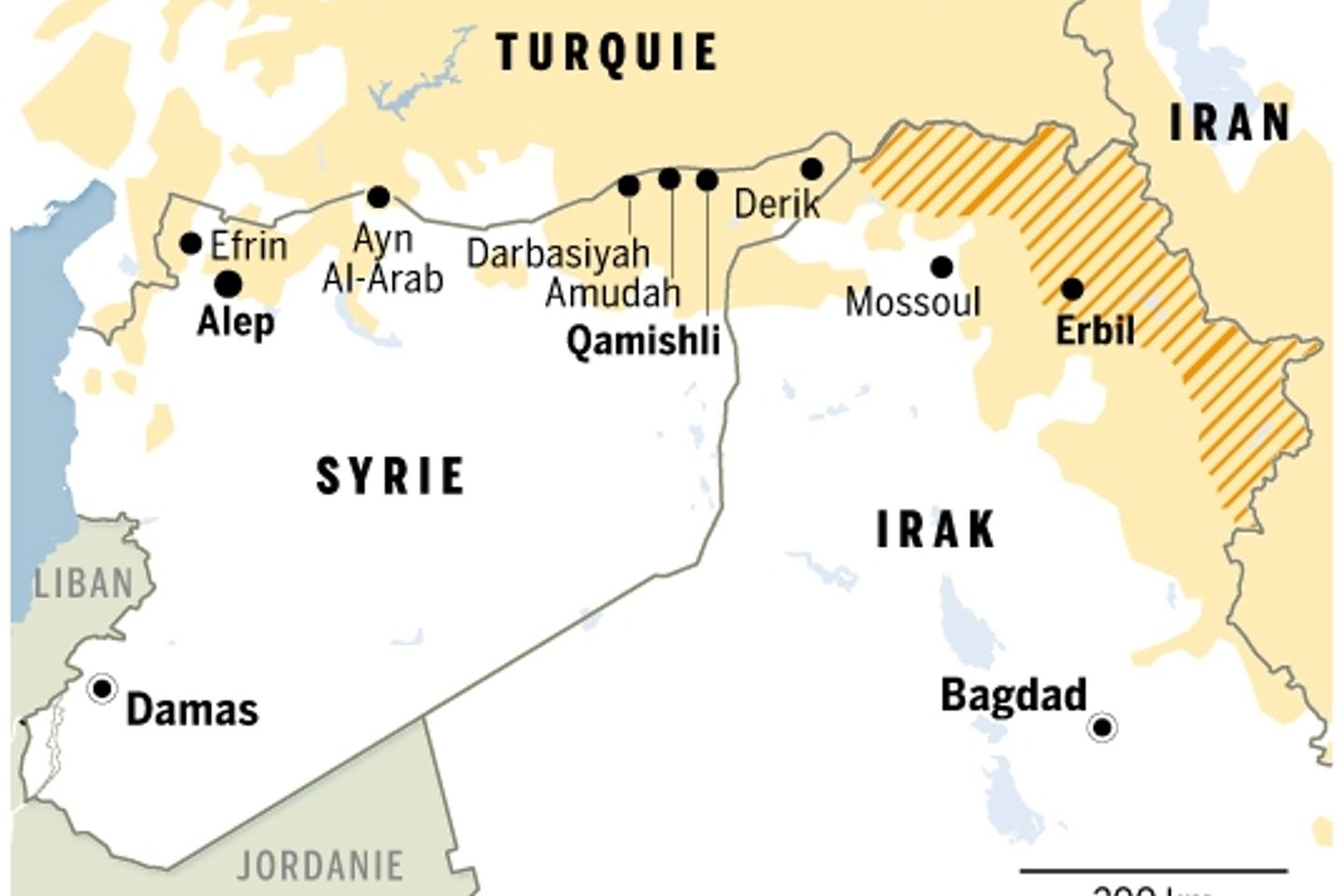Re: Prospects of a Kurdish state and what it means for Armenia
Թուրքական քաղաքականության ռեզերվը
Թուրքիան իր արտաքին քաղաքականությունը հիմնականում կառուցում է տարբեր ռեզերվներ հաշվի առնելով, եւ նկատի ունենալով, որ որոշակի ռեսուրսներ չի կարող ներկայում օգտագործել, սակայն ապագայում դրանք կարող են գործի դրվել: Նմանատիպ քաղաքականություն է իրականացնում նաեւ Իրանը, սակայն ի տարբերություն Իրանի, Թուրքիան ավելի շատ հնարավորություններ ունի ռազմավարական խնդիրները ծրագրելու համար, քանի որ ՆԱՏՕ-ի անդամ է եւ մանեւրի մեծ հնարավորություններ ունի:
Թուրքիան ներկայում հնարավորություն չունի Հարավային Կովկասում, առավել եւս, Կենտրոնական Ասիայում ակտիվ օպերացիոն քաղաքականություն վարելու համար, քանի որ ամուր կապված է Մերձավոր Արեւելքի խնդիրներով, որտեղ նրա համար խորը եւ ընդարձակ քաղաքական «ճահիճ են» պատրաստել, որի մեջ էլ մտել է: Կովկասյան-Կասպիական ուղղությամբ Թուրքիայի գլխավոր արտաքին քաղաքական ռեզերվն Ադրբեջանն է, որին միշտ դիտարկել է որպես լուրջ օժանդակություն իր խնդիրների իրականացման համար:
«Ադրբեջանական ռեզերվն» օգտագործվում է Թուրքիայի կողմից ոչ միայն որպես այդպիսին տարածաշրջանի խնդիրների լուծման համար: Ադրբեջանի հետ հարաբերությունները, ավելի ճիշտ, ոչ թե սուբյեկտի, այլ օբյեկտի հետ հարաբերություններ են ԱՄՆ հետ մի շարք հարցերի լուծման համար: Դա նյարդայնացնում է ամերիկացիներին՝ չխոսելով այլ խոշոր պետությունների մասին, սակայն Թուրքիան, հասկանալով դա, շարունակում է սեղմել «ադրբեջանական գործոնը»: Բացի այդ, ինքը՝ Ադրբեջանն, ակնհայտորեն հարմարավետ չի զգում «ռեզերվի» դերում, նույնիսկ իր առաջնային գործընկերոջ քաղաքականության շրջանակում:
«Ռեզերվացման» այդ քաղաքականությունը զսպում է Ադրբեջանին խելացնոր որոշումներից, չնայած միաժամանակ սերտ համագործակցություն կա մասշտաբային պատերազմի նախապատրաստության մասով: Ադրբեջանում դա հասկացել են, սակայն այն այլ ելք չունի, քան հետեւել Թուրքիայի շահերին, ընդ որում, ոչ միայն ռազմավարության առումով, այլեւ ընթացիկ քաղաքականության տարբեր հարցերում: Լիովին ակնհայտ է, որ Արեւմտյան հանրությունը (հենց հանրությունը) հմտորեն եւ առանց որեւէ ջանքի Թուրքիային մղձավանձի մեջ է ներքաշել, որը կոչվում է «արաբական հեղափոխություններ»:
Շատ շուտով պարզվել է, որ Թուրքիան ունակ չէ օպերացիոն քաղաքականություն իրականացնել երկու կամ մի քանի ուղղություններով: Այն պարզապես համապատասխան ռեսուրսներ չունի: Բացի այդ, Մերձավոր Արեւելքում սցենարներն ավելի անորոշ են դառնում, ինչը կարող է հանգեցնել Թուրքիայի եւ Արեւմուտքի հարաբերությունների ապակազմակերպման նոր փուլի:
Այդ պայմաններում, Անկարայից լիովին հնարավոր է ազդանշաններ տրվեն Ադրբեջանի եւ Հայաստանի միջեւ ռազմական հակամարտությունը վերսկսելու վերաբերյալ՝ Թուրքիայի դիրքերին տարածաշրջանում ու միջազգային ասպարեզում նոր նշանակություն տալու համար: Թուրքական գեներալիտետը հասկացել է, որ Ադրբեջանի զինված ուժերի պատրաստվածությունն անհրաժեշտ ու ցանկալի մակարդակի հասցնելուն սպասելը հազիվ թե նպատակահարմար է, քանի որ հարկ կլինի տասնամյակներ սպասել:
Այդ պատճառով, Թուրքիան Ադրբեջանի եւ Հայաստանի միջեւ պատերազմի վերսկսումը չի կապում ադրբեջանական բանակի պատրաստվածության մակարդակի հետ: Տվյալ դեպքում Թուրքիայի համար կարեւոր է ոչ թե ռազմական գործողությունների արդյունքը, այլ ռազմական հակամարտության քաղաքական եւ աշխարհաքաղաքական արդյունքները, որում Թուրքիան փորձում է դիրիժորի դեր խաղալ՝ հուսալով նոր դիրքեր ձեռք բերել:
Իգոր Մուրադյան
Թուրքական քաղաքականության ռեզերվը
Թուրքիան իր արտաքին քաղաքականությունը հիմնականում կառուցում է տարբեր ռեզերվներ հաշվի առնելով, եւ նկատի ունենալով, որ որոշակի ռեսուրսներ չի կարող ներկայում օգտագործել, սակայն ապագայում դրանք կարող են գործի դրվել: Նմանատիպ քաղաքականություն է իրականացնում նաեւ Իրանը, սակայն ի տարբերություն Իրանի, Թուրքիան ավելի շատ հնարավորություններ ունի ռազմավարական խնդիրները ծրագրելու համար, քանի որ ՆԱՏՕ-ի անդամ է եւ մանեւրի մեծ հնարավորություններ ունի:
Թուրքիան ներկայում հնարավորություն չունի Հարավային Կովկասում, առավել եւս, Կենտրոնական Ասիայում ակտիվ օպերացիոն քաղաքականություն վարելու համար, քանի որ ամուր կապված է Մերձավոր Արեւելքի խնդիրներով, որտեղ նրա համար խորը եւ ընդարձակ քաղաքական «ճահիճ են» պատրաստել, որի մեջ էլ մտել է: Կովկասյան-Կասպիական ուղղությամբ Թուրքիայի գլխավոր արտաքին քաղաքական ռեզերվն Ադրբեջանն է, որին միշտ դիտարկել է որպես լուրջ օժանդակություն իր խնդիրների իրականացման համար:
«Ադրբեջանական ռեզերվն» օգտագործվում է Թուրքիայի կողմից ոչ միայն որպես այդպիսին տարածաշրջանի խնդիրների լուծման համար: Ադրբեջանի հետ հարաբերությունները, ավելի ճիշտ, ոչ թե սուբյեկտի, այլ օբյեկտի հետ հարաբերություններ են ԱՄՆ հետ մի շարք հարցերի լուծման համար: Դա նյարդայնացնում է ամերիկացիներին՝ չխոսելով այլ խոշոր պետությունների մասին, սակայն Թուրքիան, հասկանալով դա, շարունակում է սեղմել «ադրբեջանական գործոնը»: Բացի այդ, ինքը՝ Ադրբեջանն, ակնհայտորեն հարմարավետ չի զգում «ռեզերվի» դերում, նույնիսկ իր առաջնային գործընկերոջ քաղաքականության շրջանակում:
«Ռեզերվացման» այդ քաղաքականությունը զսպում է Ադրբեջանին խելացնոր որոշումներից, չնայած միաժամանակ սերտ համագործակցություն կա մասշտաբային պատերազմի նախապատրաստության մասով: Ադրբեջանում դա հասկացել են, սակայն այն այլ ելք չունի, քան հետեւել Թուրքիայի շահերին, ընդ որում, ոչ միայն ռազմավարության առումով, այլեւ ընթացիկ քաղաքականության տարբեր հարցերում: Լիովին ակնհայտ է, որ Արեւմտյան հանրությունը (հենց հանրությունը) հմտորեն եւ առանց որեւէ ջանքի Թուրքիային մղձավանձի մեջ է ներքաշել, որը կոչվում է «արաբական հեղափոխություններ»:
Շատ շուտով պարզվել է, որ Թուրքիան ունակ չէ օպերացիոն քաղաքականություն իրականացնել երկու կամ մի քանի ուղղություններով: Այն պարզապես համապատասխան ռեսուրսներ չունի: Բացի այդ, Մերձավոր Արեւելքում սցենարներն ավելի անորոշ են դառնում, ինչը կարող է հանգեցնել Թուրքիայի եւ Արեւմուտքի հարաբերությունների ապակազմակերպման նոր փուլի:
Այդ պայմաններում, Անկարայից լիովին հնարավոր է ազդանշաններ տրվեն Ադրբեջանի եւ Հայաստանի միջեւ ռազմական հակամարտությունը վերսկսելու վերաբերյալ՝ Թուրքիայի դիրքերին տարածաշրջանում ու միջազգային ասպարեզում նոր նշանակություն տալու համար: Թուրքական գեներալիտետը հասկացել է, որ Ադրբեջանի զինված ուժերի պատրաստվածությունն անհրաժեշտ ու ցանկալի մակարդակի հասցնելուն սպասելը հազիվ թե նպատակահարմար է, քանի որ հարկ կլինի տասնամյակներ սպասել:
Այդ պատճառով, Թուրքիան Ադրբեջանի եւ Հայաստանի միջեւ պատերազմի վերսկսումը չի կապում ադրբեջանական բանակի պատրաստվածության մակարդակի հետ: Տվյալ դեպքում Թուրքիայի համար կարեւոր է ոչ թե ռազմական գործողությունների արդյունքը, այլ ռազմական հակամարտության քաղաքական եւ աշխարհաքաղաքական արդյունքները, որում Թուրքիան փորձում է դիրիժորի դեր խաղալ՝ հուսալով նոր դիրքեր ձեռք բերել:
Իգոր Մուրադյան



Comment